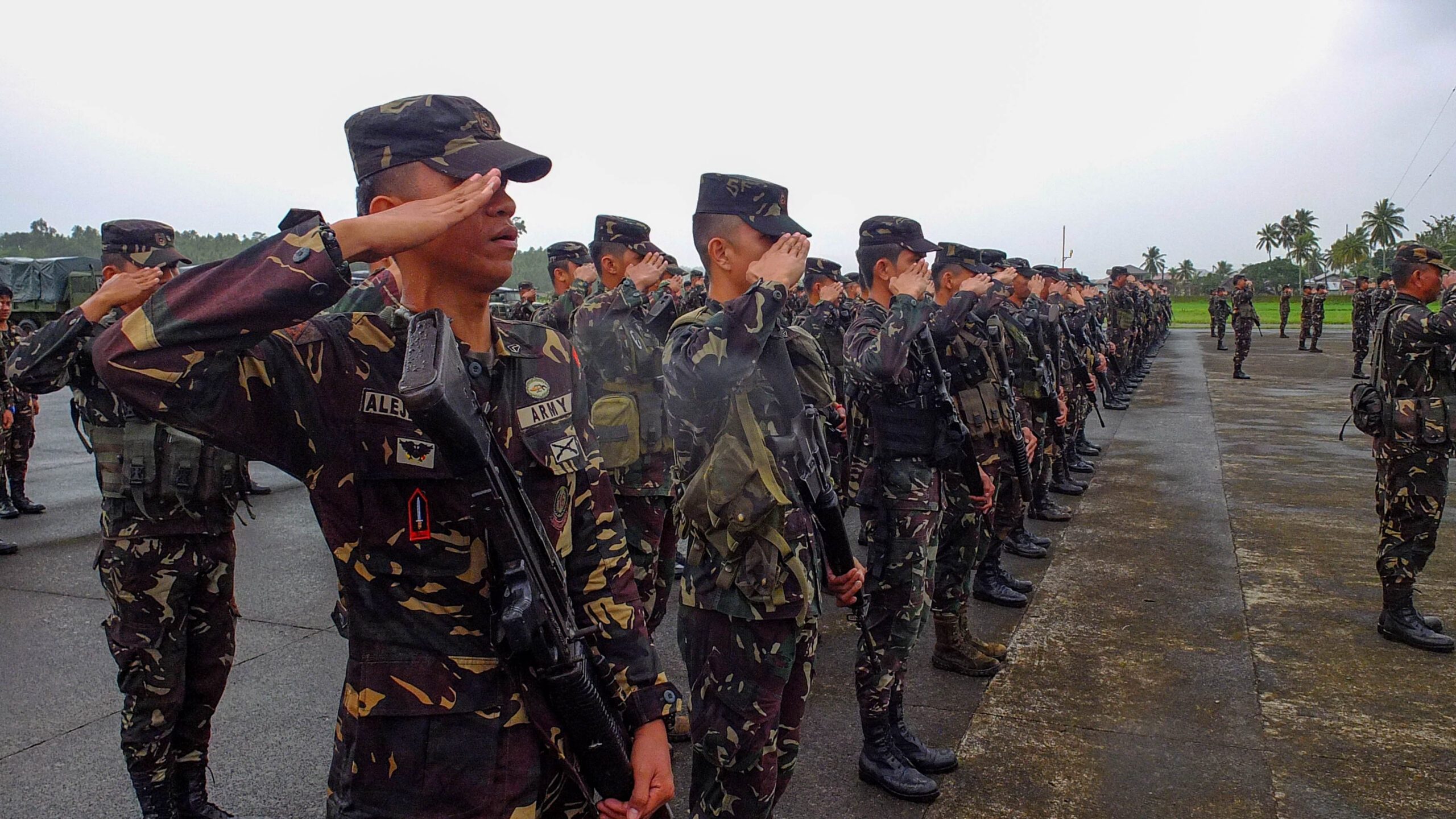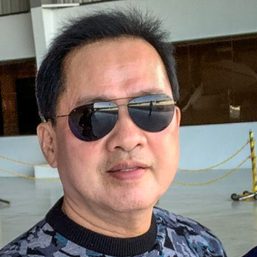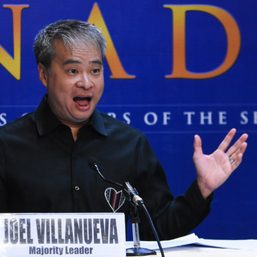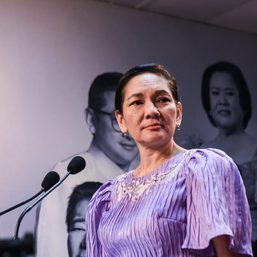SUMMARY
This is AI generated summarization, which may have errors. For context, always refer to the full article.

A Senate panel has begun discussions on setting a fixed three-year term for the chief of the Armed Forces of the Philippines (AFP) and its other top officers, and raising the age of compulsory retirement for commissioned and senior non-commissioned officers from the current 56 years.
On Thursday, September 10, the Senate sub-committee on national defense and security, peace unification and reconciliation led by Senator Richard Gordon held its first hearing on Senate Bill No. 1785, which would repeal current laws on military officers’ tenure and retirement.
There is currently no fixed term for the AFP chief of staff or any of its other officers. Following the military’s strict observance of seniority, the President often appoints a chief of staff with only months left before their compulsory retirement. This has led to a “revolving door” policy in which the appointment is perceived as a reward for loyalty to the Commander-in-Chief, and generals ripe for the post jostle for it.
“The practice of ‘revolving door’ in the appointment of the chief of staff of the AFP is inimical to public interest because it hinders continuity and stability in the leadership of the AFP and allows for political patronage and accommodation promotion that favors personalities over the security and defense of the nation. Thus, such practice must be prevented,” Gordon said.
Since 1987, there have been 35 AFP chiefs of staff who served for an average of one year, Gordon observed.
Including the current military chief General Gilbert Gapay, President Rodrigo Duterte has had 8 AFP chiefs of staff in his 4 years in office. Gapay will have served 6 months when he turns 56 in February 2021. Before him, General Felimon Santos Jr was AFP chief of staff for 7 months. Before Santos, General Noel Clement led the military for just over 3 months.
“The current system appears to limit the President’s choices to officers whose retirement draws near, which gives a perception that the selection is politically driven,” Gordon said.
Senate Bill No. 1785, filed by Gordon, sets a fixed three-year term of office for the following military officers:
- AFP Chief of Staff
- Chairman of the Joint Chiefs (concurrently the AFP Chief of Staff)
- Vice chairman of the joint chiefs
- Chief of the Army
- Chief of the Air Force
- Chief of the Navy
- Joint Forces Commanders of the Unified Commands
- Commandant of the Philippine Marine Corps
- Commander of the Special Forces Command
- Commander of the Cyber Security Command
The bill sets a 4-year fixed term for the superintendent of the Philippine Military Academy. The appointee should have at least 4 years of remaining active duty to qualify.
The proposed measure sets the age of compulsory retirement for these and other commissioned officers in the military at 65 years old.
Appointees to the positions of vice chairman of the joint chiefs, chief of the joint staff, chief of the Army, chief of the Air Force, and chief of the Navy must have at least 3 years of remaining active service to qualify.
This three-year minimum does not apply to the AFP chief of staff – their retirement may be deferred beyond the age of compulsory retirement until they complete their three-year term. This term may also be extended in times of war or national emergency declared by Congress.
Compulsory retirement at 65 only for AFP chief of staff?
During the Senate panel hearing, resource persons from the defense establishment including Defense Secretary Delfin Lorenzana said only the AFP chief of staff should be compulsorily retired at 65 years old. All other commissioned officers and senior non-commissioned officers should be made to retire at 62 years old.
Gordon and Senate Minority Leader Franklin Drilon, who was part of the panel, took note of this suggestion.
Under the proposed measure, enlisted personnel with the rank of master sergeant and below are to compulsorily retire at the age of 56 with at least 20 years of active service, or upon accumulating 30 years of satisfactory active service, whichever comes earlier.
Lorenzana said this is to maintain a relatively young military.
No more ‘revolving door’
The defense chief has long campaigned for a fixed term for the AFP chief of staff, referred to in the military as the CSAFP.
“The disadvantage of a brief stint is that there is not enough time for the CSAFP to really have his leadership felt by the organization. When a CSAFP retires, there is a ripple effect down the line as those commanders likewise may have stayed only a short time in their commands before going up the ladder of command,” Lorenzana told Rappler in January.
It normally takes 6 months for the CSAFP to get familiarized with the job. They reach full swing in implementing their plans and programs on their second year, Lorenzana said.
However, it is rare that a CSAFP is able to stay beyond one year under the current practice.
Although pleased with the AFP’s performance over the past two decades despite having short-term chiefs of staff, the defense secretary said the military could have done better if CSAFPs served three-year terms.
In 2012, then president Benigno Aquino III vetoed a similar bill, saying it would have been unconstitutional to allow a CSAFP to remain in office beyond the mandatory retirement age. The problem would have only applied to the military chief at the time, and Aquino could have appointed a new CSAFP with 3 years left in active service. – Rappler.com
Add a comment
How does this make you feel?





There are no comments yet. Add your comment to start the conversation.